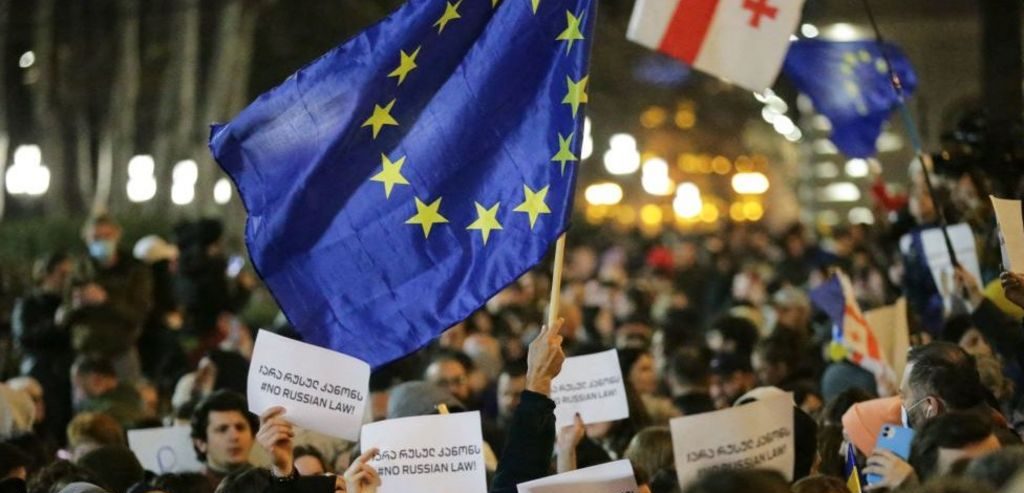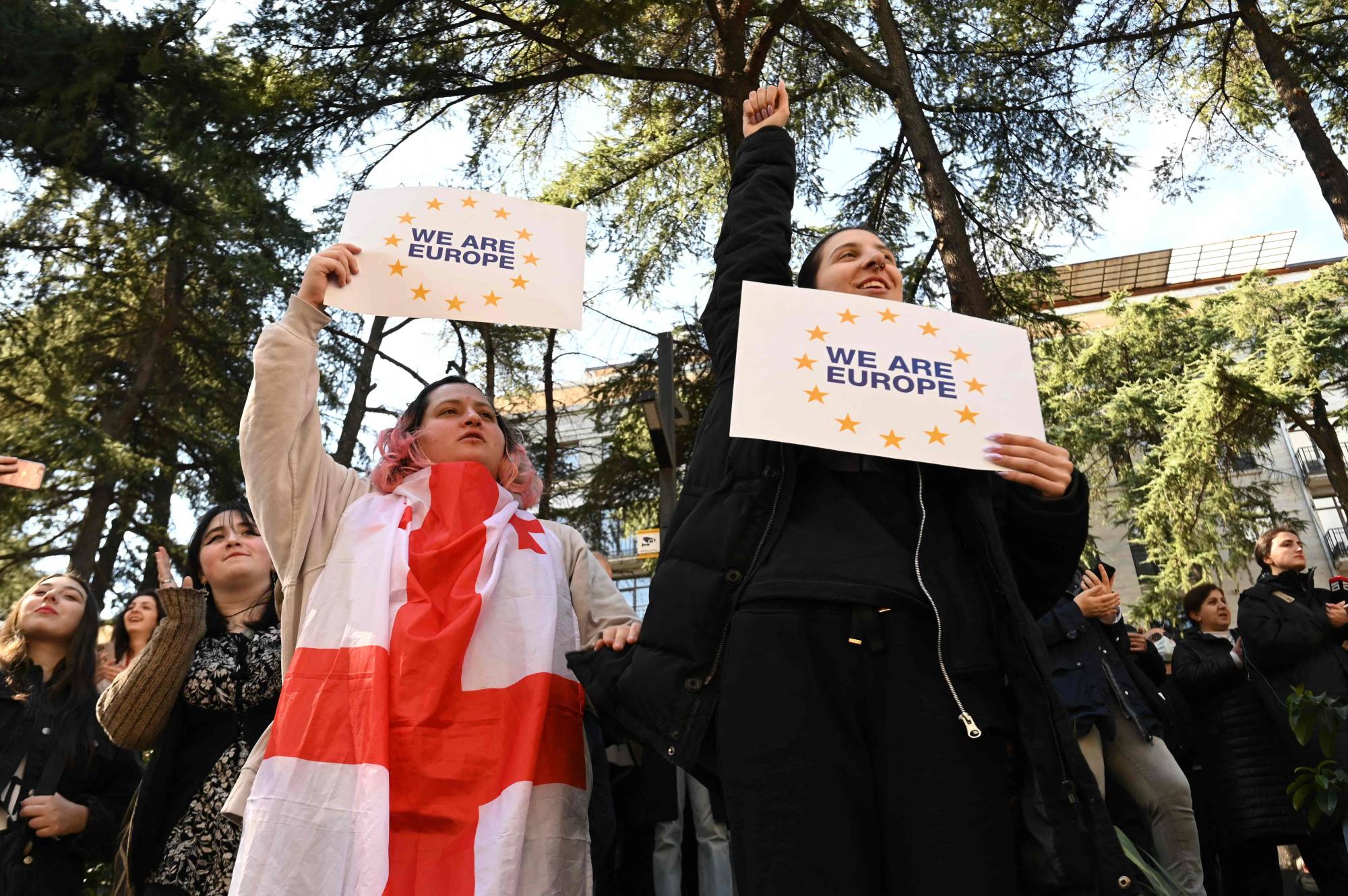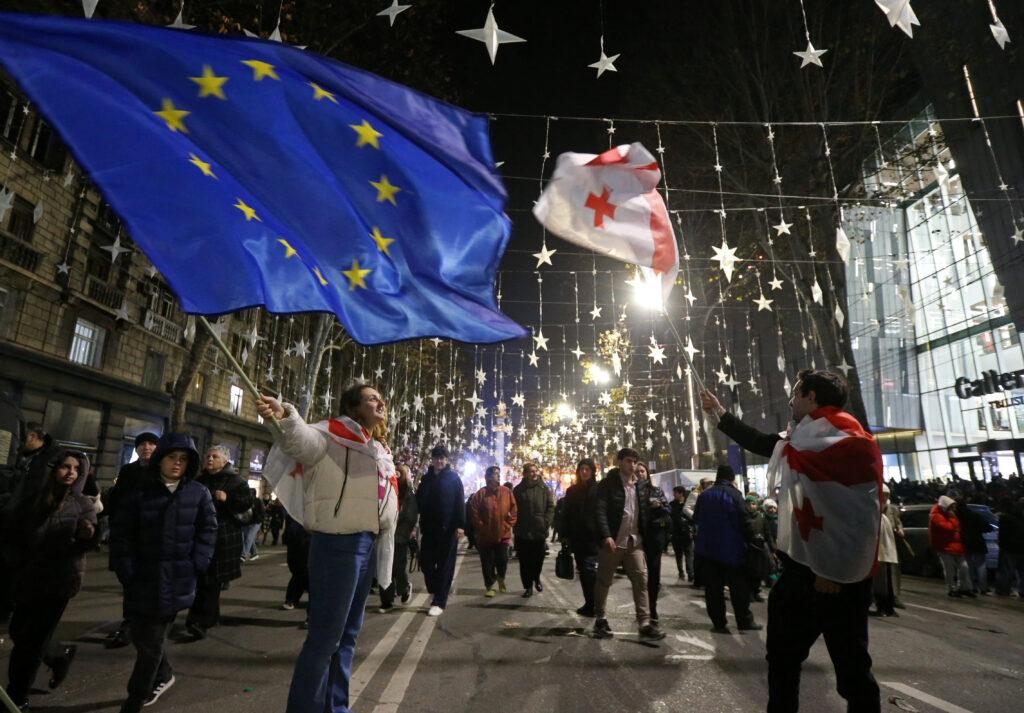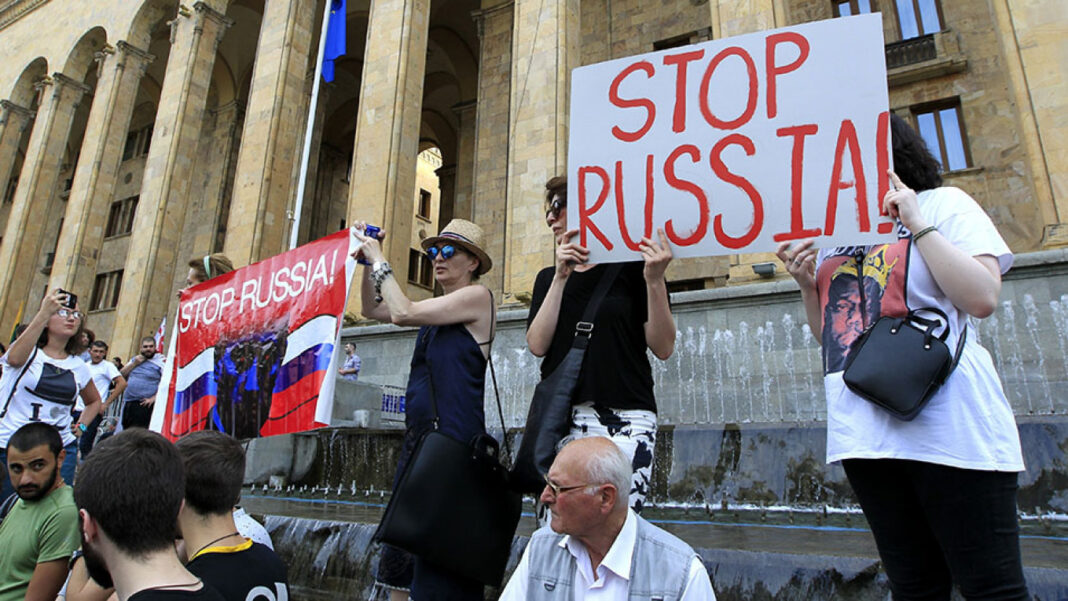On Monday, thousands gathered in Tbilisi, the capital of Georgia, to protest against a contentious “foreign influence” bill believed to be modeled after Russia’s authoritarian laws aimed at stifling dissent.
Chanting “No to the Russian law,” demonstrators outside parliament wielded EU and Georgian flags.

Last year, a similar “foreign agents” bill was met with widespread protests, leading the government to withdraw it. However, this month, the government announced plans to reintroduce the legislation, now dubbed the “Transparency of Foreign Influence” bill.
Marisha, a 23-year-old protester, voiced the sentiment of many: “We are fighting for our freedom.” Holding a stick with the Georgian flag, she emphasized the importance of every citizen’s role in shaping the country’s future.

The proposed bill mandates that non-governmental organizations and media entities, which receive over 20% of their funding from foreign sources, register as an “organization serving the interests of a foreign power.”
Prime Minister Irakli Kobakhidze justified the necessity of the law by stating that it aims to ensure transparency regarding the financial support received by grant recipients.
Controversy Erupts: Opposition Accuses Georgian Government of Suppressing Dissent
Opposition parties and independent journalists criticize the bill, alleging it aims to silence dissent and jeopardize Georgia’s EU prospects. They liken it to laws used by Russian President Vladimir Putin.
President Salome Zurabishvili reaffirms Georgia’s rejection of Soviet influence, stating, “Georgia will not surrender to re-Sovietization.”
The Georgian government denies similarities to Russian legislation. Mamuka Mdinaradze of Georgian Dream emphasizes Georgia’s rejection of such laws.
Tensions escalate in parliament as Mdinaradze is punched by opposition MP Aleko Elisashvili, triggering a brawl.

Opposition politician Zurab Japaridze from the Girchi – More Freedom party accused Georgian Dream of fearing the loss of power. Although Georgian Dream currently holds a parliamentary majority, the country is preparing for upcoming elections.
Japaridze calls for Western-demanded reforms in key sectors, accusing the government of avoiding them to maintain power by suppressing dissent, similar to Putin’s tactics.
International Criticism of “Foreign Influence” Bill

The “foreign influence” bill faces strong criticism from the EU and the US for conflicting with Georgia’s EU integration goals. Despite widespread support for EU membership among Georgians, the bill’s compatibility with democratic norms remains a subject of concern.
The bill raises concerns about Georgia’s democratic values and EU membership path. Despite widespread opposition, the government has not addressed these concerns, prompting doubts about its commitment to European standards.
